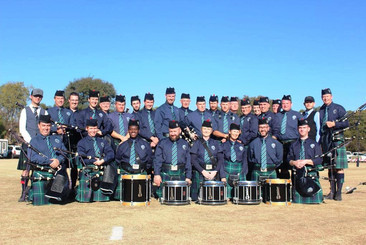

Welcome to Bagpipe Connexions, where we cater for your Celtic Music & Dancing Needs!
Who are the Celts
Long before the Romans set foot on the British Isles in 55 BC, the Celts of central Europe had migrated to and settled in Britain and Ireland, bringing with them a wealth of languages, customs, music, and dance. While the Celts’ 3000-year-old legacy remains most prominent in Ireland and Great Britain, their music and culture, including the Highland bagpipes and traditional Highland and Irish dance, continues to thrive in many parts of the world, including South Africa.
In recent years, Celtic folk music has enjoyed a worldwide revival of sorts, and has given rise to a new genre of music that combines the soul-stirring drones of the Highland bagpipe with the dynamic rhythm and sounds of rock music And who could forget how Riverdance and its ensemble cast of Celtic dancers, vocalists, and musicians set the world alight with its exhilarating, high-voltage interpretation of Irish dancing?
About Bagpipe Connexions
Based in Pretoria, Bagpipe Connexions is a platform that aims to coordinate the art and culture of Celtic music and dance throughout South Africa. At its heart is Rod Watters—one of South Africa’s influential and well respected bagpipers and bagpipe competition judges—who, since the age of seven, has devoted much of his spare time to studying and playing bagpipes. With more than half a century of competitive bagpiping and tutoring under his belt, Rod is widely known amongst the Scottish community for having mentored many bagpipers to follow in his footsteps and embrace the art of bagpipe playing.
Now, Rod draws on his many years of experience and expertise to bring together a network of the best bagpipers, bagpipe tutors, and top-class Celtic dancers currently available in South Africa. Bagpipe Connexions' numerous tutors and performers are passionate about their art, and would love to demonstrate their skills and share their knowledge with you.
About Bagpipes
The bagpipe has a long and honourable history that stretches back several millennia and is one of the oldest musical instruments still being played today. Contrary to popular belief, however, the bagpipe did not originate in Scotland, but in Ancient Egypt or the Middle East around 10th-century BC. The instrument travelled through and evolved in Europe as early civilisations—including the Ancient Romans and Celts—migrated across the continent.
How bagpipes arrived in Scotland and became the national instrument is somewhat shrouded in mystery. Most historians believe that the instrument was introduced to Britain by invading Romans in as early as 43 AD. Others maintain that it was brought over the water by the Celts or Anglo Saxons from neighbouring Ireland. Although concrete evidence of the bagpipe’s existence in Britain is limited up until the 14th century, the instrument is explicitly mentioned and featured in The Canterbury Tales (written around 1380). And the first, clear reference to the Scottish Highland bagpipe as we know it today, is chronicled at the Battle of Pinkie Cleugh of 1547, when the instrument replaced the trumpet on the battlefield.
Today, the Scottish Highland Bagpipe is widely used by both pipe bands and soloists, and is a featured instrument in Celtic music and dance. Now you, too, can learn to play the bagpipes and be a part of its rich history.








